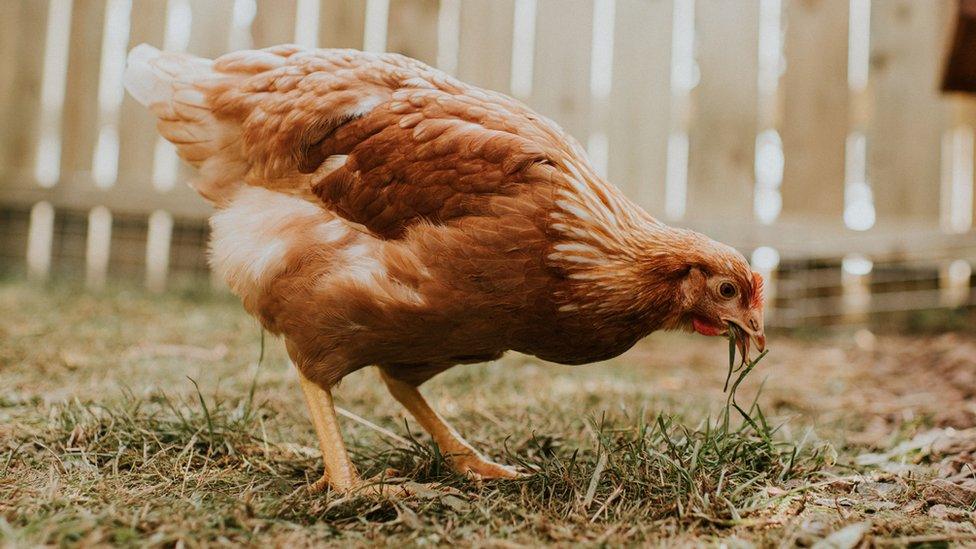Bird flu virus out of control warn farmers in East of England
- Published
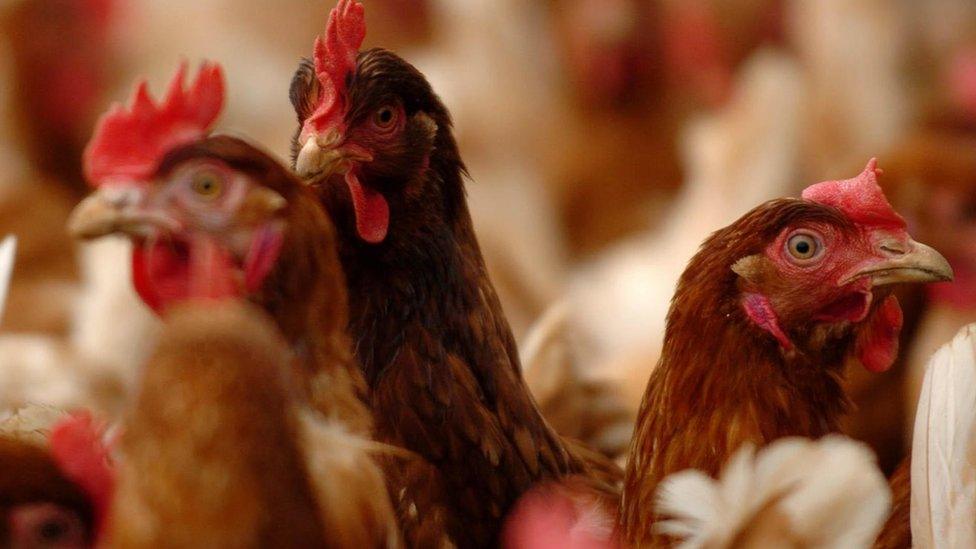
Avian flu, which is highly contagious among birds, is increasing rapidly despite biosecurity measures
The number of bird flu cases in the East of England has been steadily increasing, with protection zones introduced across Norfolk, Suffolk and parts of Essex.
According to the Department for the Environment, Food and Rural Affairs (Defra), the UK faces its largest ever outbreak of avian flu, external with more than 150 cases confirmed since late October 2021.
It has led to the culling of thousands of birds. So what can businesses do about the growing contagion?

'Vaccinate our chickens'
The rise in bird flu cases - the East region now has 11 live outbreaks - means anyone keeping birds within Defra designated protection zones, no matter how few, needs to follow strict biosecurity measures for the foreseeable future.
Avian flu has been with us for about 12 months, according to Defra, and has proliferated in the UK through wild birds.
In the past the virus would arrive with migratory birds, then disappear once the birds went north again.
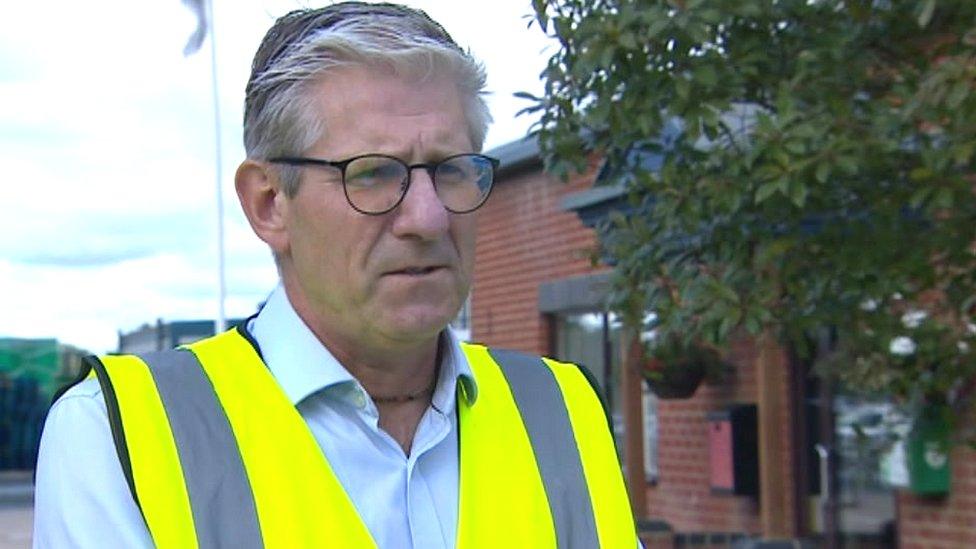
Poultry farmer Mark Gorton is calling for poultry to be vaccinated
Mark Gorton of Traditional Norfolk Poultry in Shropham, Norfolk, farms hundreds of thousands of free-range and organic chickens and turkeys, and says the flu is worrying.
The East of England contains more than a fifth of England's poultry farms and produces about 41% of the country's turkeys, according to Defra statistics.
"It's a massive, massive concern for us in the industry," he says.
"The reason why it's out of control is because it's moved across into the indigenous bird population."
Farmers carry out full biosecurity measures "as routine" to help prevent the spread of flu, but to lessening effect, he says.
Birds such as seagulls, pheasants, crows and birds of prey have all been found with bird flu and once established it is "very difficult" to get the disease under control, he says.
And migrating birds from places like Siberia have not yet arrived in the UK.
"We're absolutely terrified what's going to happen when the big numbers of the ducks and geese do start to migrate in," he says.
"We're concerned it could make things a lot worse than it already is. Clearly things [like protection zones] aren't working."
He says the only way to deal with the problem is vaccination, especially for free-range and organic farmers whose flocks are exposed to contact with wild birds.
"Nationally we should be vaccinating our chickens against it. There are vaccinations available around the world," says Mr Gorton.
However, Defra does not permit their use by farmers in the UK.

'Virus here to stay'
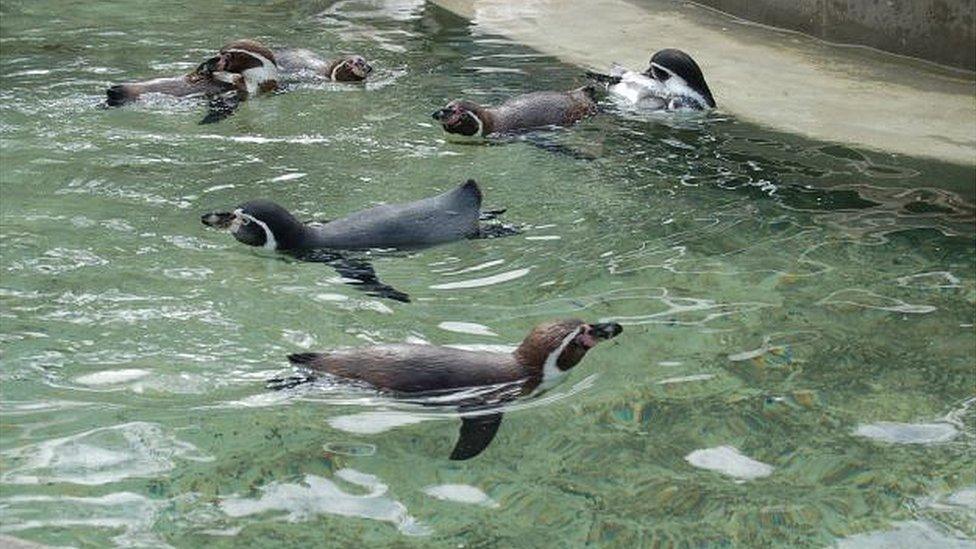
Visitors are having to be kept away from penguin enclosures at zoos because of the fears of the H5N1 virus
The virus does not just affect food supplies. It is also worrying some of the region's zoos and animal sanctuaries.
Claudia Roberts is chief executive of the Zoological Society of East Anglia, which runs Banham Zoo in Norfolk and Africa Alive in Suffolk.
She says the virus in the wild bird population makes it "very difficult to control now".
Bird flu has seen the closure of the penguin and flamingo enclosures.
Other birds have also had to go into safe enclosures, where wild birds can be prevented from entering, and disinfectant foot dips have been placed at zoo entrances.
"We reinforce our enclosures, use protective clothing, all sorts of things to try and keep our areas safe, and we have to close certain things," says Ms Roberts.
"That's quite frustrating. The devastating impact would obviously be if a case was found on our site and the measures one might have to take on that basis."
She says the "virus was becoming something that was here to stay", meaning zoos have to look at how they protect the health and safety of birds and maintain their endangered programmes.
"I would say that we're probably going to have to re-look at how we house them in the future, so that they have much better protection," she says.
Vaccination is something that might help avoid mass culling and "definitely something we would be interested in knowing more about", she adds.

'Lots of Christmas dinners gone'
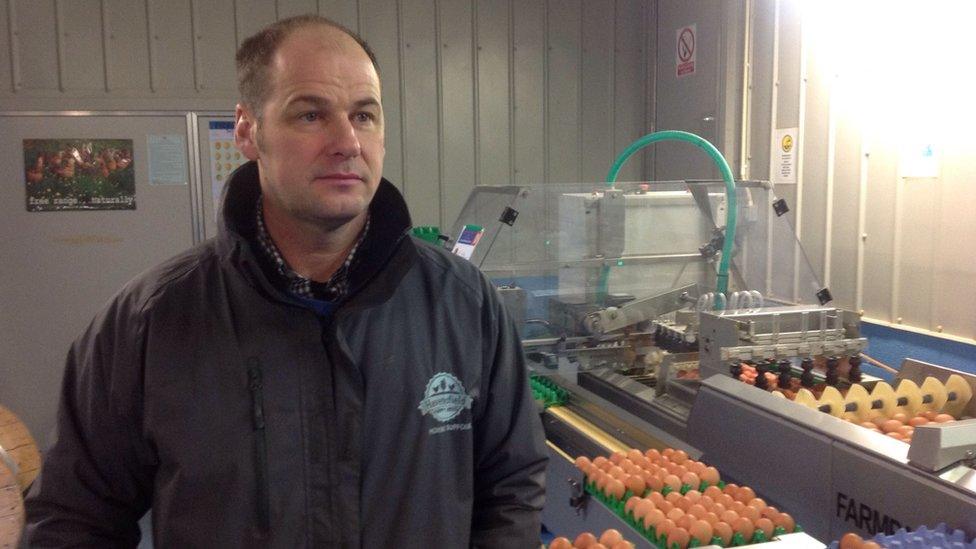
Alaistaire Brice of Havensfield Happy Hens says Defra needs to do more to help prevent continued rise in bird flu
Egg producer Alaistaire Brice, of Havensfield Happy Hens in Hoxne, Suffolk, says "you can't stop birds flying overhead and landing on our chicken ranges".
Mr Brice says farmers are already struggling with higher feed prices and profit margins. "We cannot take any more risk at the moment," he says.
He claims thousands of turkeys have been culled in the region in the past few days, despite being in enclosed buildings.
"That's an awful lot of Christmas dinners gone," he says.
"So even with the very best biosecurity in the world you can't necessarily prevent it.
"If there's a bit of bird poo on the concrete and you happen to walk it into your building, it's devastating."
He adds: "There's a significant problem mounting in that people are refusing to re-stock their chickens in their farms because of the risk associated with bird flu.
"This will have an impact on food supply long-term as well."
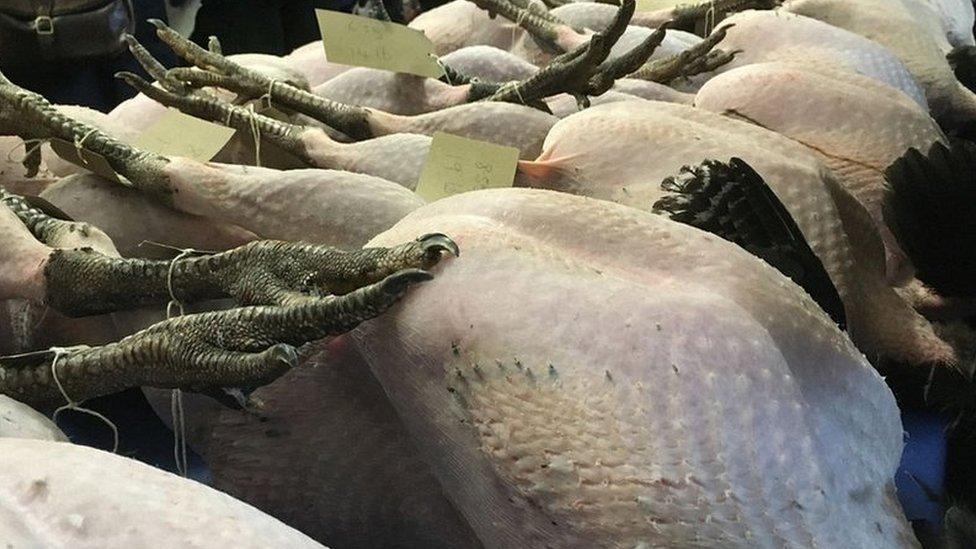
Plentiful supply of turkeys for Christmas may be an issue warns one farmer after thousands of birds are culled
Defra has not issued a statement on vaccines, but has explained that although they were able to reduce mortality, some vaccinated birds would still be capable of transmitting the disease if they became infected, while not displaying symptoms.
The government body says this would cause further issues by increasing the time taken to detect and eradicate the virus.

Find BBC News: East of England on Facebook, external, Instagram, external and Twitter, external. If you have a story suggestion email eastofenglandnews@bbc.co.uk, external
Related topics
- Published28 September 2022

- Published27 September 2022
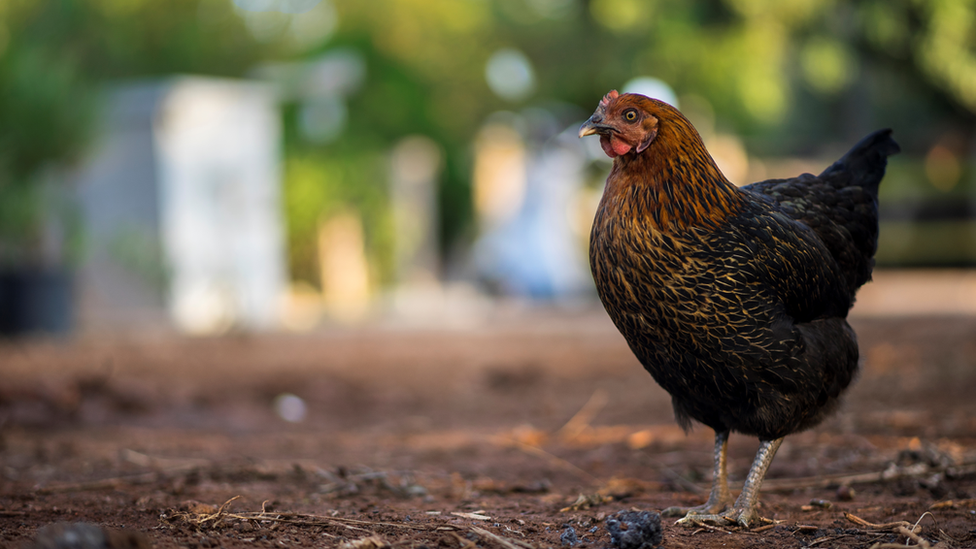
- Published22 August 2022
